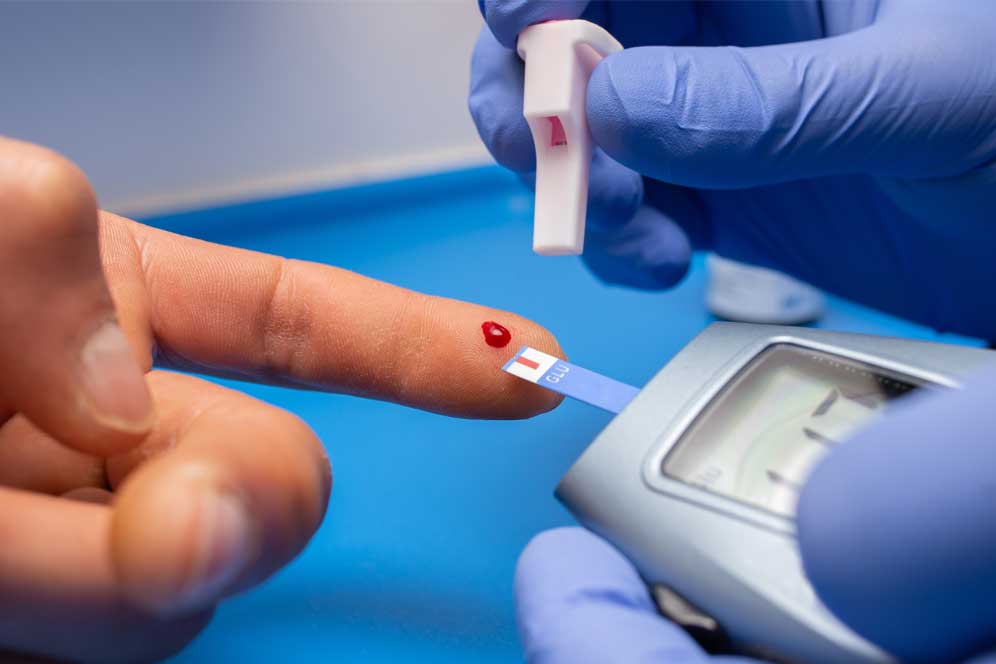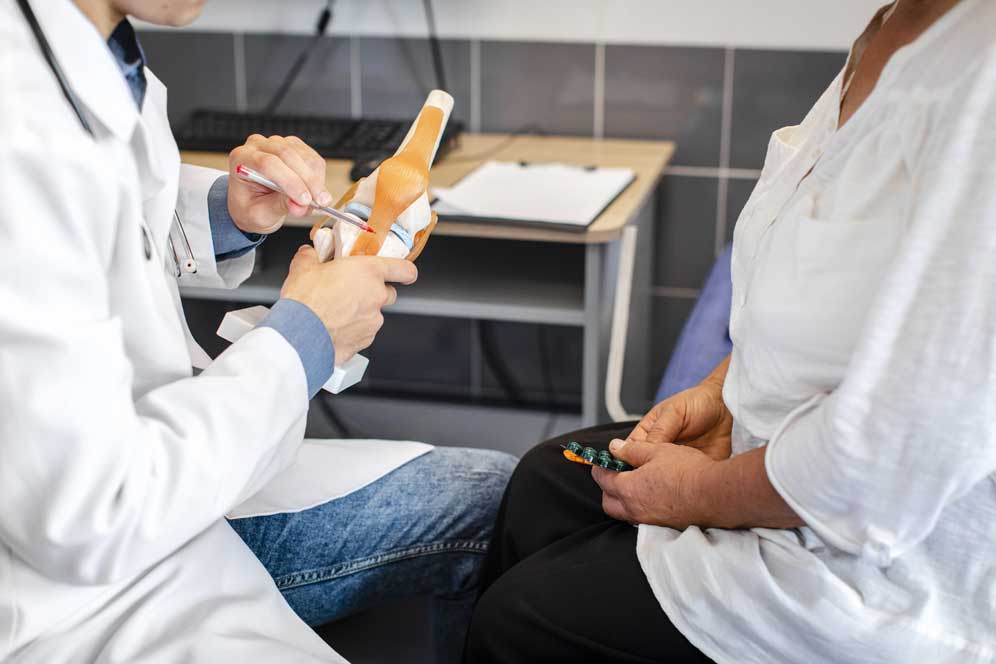
10 Jul 2025
How General Medicine Supports Early Diagnosis and Prevention
In today’s fast-paced world, healthcare isn’t just about treating diseases—it’s about preventing them. The foundation of this shift lies in general medicine, a discipline that plays a crucial role in early diagnosis and preventive healthcare. General physicians, often the first point of contact for patients, don’t just manage symptoms—they build long-term relationships that allow them to detect potential issues early and intervene before they become serious.
The Role of a Primary Care Physician
A primary care physician (PCP) is your long-term health partner. They know your medical history, lifestyle, and health habits, which makes them uniquely equipped to notice changes that others might miss. Whether it’s a subtle shift in your blood pressure, recurring fatigue, or an unusual lab result, a general physician can connect the dots and guide you toward further evaluation, lifestyle adjustments, or specialist consultation if needed.
But beyond treating illness, general physicians act as gatekeepers of preventive healthcare. From administering vaccines to recommending health screenings based on age, gender, and risk factors, they ensure you stay one step ahead of disease.
Early Diagnosis Saves Lives
Early diagnosis is one of the most powerful tools in modern medicine. Catching diseases in their initial stages—before symptoms escalate or complications arise—can dramatically improve outcomes. For example:
-
Diabetes detected early can be managed with lifestyle changes, delaying or preventing the need for insulin.
-
Hypertension discovered in routine check-ups can be controlled to avoid heart attacks or strokes.
-
Cancer found in the early stages often allows for more effective and less invasive treatments.
A general medicine expert doesn't just react to illness—they work proactively to identify red flags during regular check-ups and health screenings.
Preventive Healthcare Starts with General Medicine
Preventive healthcare focuses on minimizing risk before disease takes hold. It includes:
-
Regular health check-ups
-
Lifestyle counseling (nutrition, exercise, smoking cessation)
-
Screening tests (cholesterol, blood sugar, mammograms, colonoscopies, etc.)
-
Vaccinations and immunizations
-
Monitoring of chronic health conditions
General physicians are trained to customize prevention plans based on each patient’s personal and family history. For instance, if your family has a history of cardiovascular disease, your general physician might recommend cholesterol tests earlier than usual or track your heart health more closely.
Moreover, preventive care isn’t just about physical health. General medicine also plays a vital role in screening for mental health conditions like depression and anxiety—often overlooked in specialized care settings.
Chronic Disease Management and Risk Reduction
Many chronic diseases like heart disease, obesity, and type 2 diabetes develop silently over time. Through regular monitoring, general medicine practitioners can detect subtle warning signs early. For example:
-
An increase in fasting blood sugar may suggest prediabetes.
-
Gradual weight gain may be a signal of metabolic syndrome.
-
Consistently elevated blood pressure may warrant lifestyle intervention before medications are needed.
By recognizing these indicators early, general physicians help patients make small changes—diet, exercise, sleep—that have big long-term benefits.
General Medicine as a Lifelong Health Companion
From childhood vaccinations to geriatric care, general medicine spans every stage of life. This continuity of care builds trust and allows for better health tracking over time. When patients visit the same doctor year after year, that doctor understands what’s "normal" for them—making it easier to catch when something is off.
This relationship also fosters open communication. Patients are more likely to discuss concerns, even those they might find embarrassing or insignificant, when they feel supported. That openness can lead to earlier diagnosis and better outcomes.
The Cost-Effective Path to Wellness
Preventive healthcare through general medicine isn’t just better for your health—it’s also better for your wallet. Treating diseases in their advanced stages is often expensive, requiring hospitalization, surgeries, or lifelong medications. In contrast, regular check-ups and early interventions cost significantly less and lead to better quality of life.
Insurance companies and public health systems increasingly emphasize preventive care because it lowers the overall burden on the healthcare system. General physicians help ensure that resources are used wisely—focusing on prevention rather than cure.
Empowering Patients through Education
One of the most underrated roles of a general physician is patient education. They teach patients how to:
-
Understand symptoms and when to seek help
-
Interpret lab reports or diagnostic tests
-
Modify lifestyle habits to lower disease risk
-
Manage medications and track chronic conditions
This education leads to health literacy, empowering patients to take control of their health journeys. And that’s where real change begins.
Technology and the Future of General Medicine
Digital health tools—from fitness trackers to telemedicine—are transforming how preventive care is delivered. General medicine has adapted by integrating these tools to monitor health remotely, track progress in chronic disease, and offer virtual consultations.
For example, a patient wearing a smartwatch that detects irregular heart rhythms might be prompted to see their physician, who can then run further tests and intervene early. Similarly, routine health data logged via apps can be reviewed during visits for more accurate diagnosis.
As AI and data analytics grow, general medicine will continue to evolve, making early diagnosis even faster and more precise.
Conclusion: Prevention is the New Cure
General medicine is the unsung hero of modern healthcare—working silently to catch illnesses before they become crises. Whether it's through regular check-ups, timely screenings, or simply listening to what a patient’s body is trying to say, general physicians play a crucial role in early diagnosis and disease prevention.
By fostering long-term relationships, focusing on personalized care, and educating patients, they are not just treating illness—they are building healthier futures. If you haven’t seen your primary care doctor in a while, this is your sign to schedule that check-up. Because when it comes to health, preventing is always better than curing.
Recent Blogs
-

We will work with you to develop individualised care plans
Arora Neuro Centre maintains awareness about the vital association between diabetes and neurological health issues where diabetic patients face greater stroke susceptibility.
-

How Diabetes Affects Brain Health: The Hidden Risks
Typically diabetes causes problems with blood sugar management as well as negative effects on heart organs and kidneys.
-

Can Diabetic Neuropathy Be Prevented? What You Need to Know
One of the typical complications arising from diabetes affects nerves through diabetic neuropathy which results in various symptoms from muffled sensation and tingles to intense pain.
-

Psychotherapy for Anxiety: Techniques That Really Work
Anxiety is one of the most common mental health conditions in India and around the world. It can affect anyone, whether you’re a student under pressure, a working professional managing deadlines, or a parent juggling multiple responsibilities
-

Physiotherapy vs. Chiropractic: What's Really Differentiating Them?
Physiotherapy and chiropractic care both aim to relieve pain and improve mobility, but they differ in approach. Physiotherapists focus on exercise, movement, and rehabilitation, while chiropractors primarily use spinal adjustments to treat musculoskeletal issues. Understanding these differences can help you choose the right treatment.
